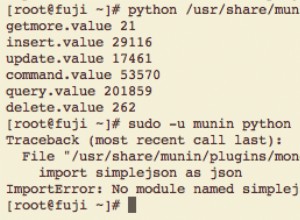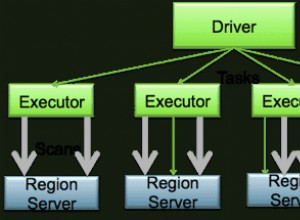Para atingir esse objetivo, precisamos criar permutação de todos os caminhos permitidos. Por exemplo:
type Structure = {
user: {
name: string,
surname: string
}
}
type BlackMagic<T>= T
// user.name | user.surname
type Result=BlackMagic<Structure>
O problema se torna mais interessante com arrays e tuplas vazias.
Tuple, o array com comprimento explícito, deve ser gerenciado desta forma:
type Structure = {
user: {
arr: [1, 2],
}
}
type BlackMagic<T> = T
// "user.arr" | "user.arr.0" | "user.arr.1"
type Result = BlackMagic<Structure>
A lógica é direta. Mas como podemos lidar com
number[] ? Não há garantia de que o índice 1 existe. Decidi usar
user.arr.${number} . type Structure = {
user: {
arr: number[],
}
}
type BlackMagic<T> = T
// "user.arr" | `user.arr.${number}`
type Result = BlackMagic<Structure>
Ainda temos 1 problema. Tupla vazia. Array com zero elementos -
[] . Precisamos permitir a indexação? Não sei. Decidi usar -1 . type Structure = {
user: {
arr: [],
}
}
type BlackMagic<T> = T
// "user.arr" | "user.arr.-1"
type Result = BlackMagic<Structure>
Acho que a coisa mais importante aqui é alguma convenção. Também podemos usar strings "nunca". Acho que cabe ao OP como lidar com isso.
Como sabemos como precisamos lidar com diferentes casos, podemos iniciar nossa implementação. Antes de continuarmos, precisamos definir vários auxiliares.
type Values<T> = T[keyof T]
{
// 1 | "John"
type _ = Values<{ age: 1, name: 'John' }>
}
type IsNever<T> = [T] extends [never] ? true : false;
{
type _ = IsNever<never> // true
type __ = IsNever<true> // false
}
type IsTuple<T> =
(T extends Array<any> ?
(T['length'] extends number
? (number extends T['length']
? false
: true)
: true)
: false)
{
type _ = IsTuple<[1, 2]> // true
type __ = IsTuple<number[]> // false
type ___ = IsTuple<{ length: 2 }> // false
}
type IsEmptyTuple<T extends Array<any>> = T['length'] extends 0 ? true : false
{
type _ = IsEmptyTuple<[]> // true
type __ = IsEmptyTuple<[1]> // false
type ___ = IsEmptyTuple<number[]> // false
}
Acho que a nomeação e os testes são auto-explicativos. Pelo menos eu quero acreditar :D
Agora, quando tivermos todos os nossos utils configurados, podemos definir nosso util principal:
/**
* If Cache is empty return Prop without dot,
* to avoid ".user"
*/
type HandleDot<
Cache extends string,
Prop extends string | number
> =
Cache extends ''
? `${Prop}`
: `${Cache}.${Prop}`
/**
* Simple iteration through object properties
*/
type HandleObject<Obj, Cache extends string> = {
[Prop in keyof Obj]:
// concat previous Cacha and Prop
| HandleDot<Cache, Prop & string>
// with next Cache and Prop
| Path<Obj[Prop], HandleDot<Cache, Prop & string>>
}[keyof Obj]
type Path<Obj, Cache extends string = ''> =
// if Obj is primitive
(Obj extends PropertyKey
// return Cache
? Cache
// if Obj is Array (can be array, tuple, empty tuple)
: (Obj extends Array<unknown>
// and is tuple
? (IsTuple<Obj> extends true
// and tuple is empty
? (IsEmptyTuple<Obj> extends true
// call recursively Path with `-1` as an allowed index
? Path<PropertyKey, HandleDot<Cache, -1>>
// if tuple is not empty we can handle it as regular object
: HandleObject<Obj, Cache>)
// if Obj is regular array call Path with union of all elements
: Path<Obj[number], HandleDot<Cache, number>>)
// if Obj is neither Array nor Tuple nor Primitive - treat is as object
: HandleObject<Obj, Cache>)
)
// "user" | "user.arr" | `user.arr.${number}`
type Test = Extract<Path<Structure>, string>
Há um pequeno problema. Não devemos retornar props de nível mais alto, como
user . Precisamos de caminhos com pelo menos um ponto. Existem duas maneiras:
- extraia todos os adereços sem pontos
- forneça um parâmetro genérico extra para indexar o nível.
Duas opções são fáceis de implementar.
Obtenha todos os adereços com
dot (.) :type WithDot<T extends string> = T extends `${string}.${string}` ? T : never
Enquanto o util acima é legível e de fácil manutenção, o segundo é um pouco mais difícil. Precisamos fornecer um parâmetro genérico extra em ambos
Path e HandleObject .Veja este exemplo retirado de outros pergunta
/ artigo
:type KeysUnion<T, Cache extends string = '', Level extends any[] = []> =
T extends PropertyKey ? Cache : {
[P in keyof T]:
P extends string
? Cache extends ''
? KeysUnion<T[P], `${P}`, [...Level, 1]>
: Level['length'] extends 1 // if it is a higher level - proceed
? KeysUnion<T[P], `${Cache}.${P}`, [...Level, 1]>
: Level['length'] extends 2 // stop on second level
? Cache | KeysUnion<T[P], `${Cache}`, [...Level, 1]>
: never
: never
}[keyof T]
Honestamente, eu não acho que será fácil para qualquer um ler isso.
Precisamos implementar mais uma coisa. Precisamos obter um valor pelo caminho calculado.
type Acc = Record<string, any>
type ReducerCallback<Accumulator extends Acc, El extends string> =
El extends keyof Accumulator ? Accumulator[El] : Accumulator
type Reducer<
Keys extends string,
Accumulator extends Acc = {}
> =
// Key destructure
Keys extends `${infer Prop}.${infer Rest}`
// call Reducer with callback, just like in JS
? Reducer<Rest, ReducerCallback<Accumulator, Prop>>
// this is the last part of path because no dot
: Keys extends `${infer Last}`
// call reducer with last part
? ReducerCallback<Accumulator, Last>
: never
{
type _ = Reducer<'user.arr', Structure> // []
type __ = Reducer<'user', Structure> // { arr: [] }
}
Você pode encontrar mais informações sobre como usar
Reduce no meu blog
. Código completo:
type Structure = {
user: {
tuple: [42],
emptyTuple: [],
array: { age: number }[]
}
}
type Values<T> = T[keyof T]
{
// 1 | "John"
type _ = Values<{ age: 1, name: 'John' }>
}
type IsNever<T> = [T] extends [never] ? true : false;
{
type _ = IsNever<never> // true
type __ = IsNever<true> // false
}
type IsTuple<T> =
(T extends Array<any> ?
(T['length'] extends number
? (number extends T['length']
? false
: true)
: true)
: false)
{
type _ = IsTuple<[1, 2]> // true
type __ = IsTuple<number[]> // false
type ___ = IsTuple<{ length: 2 }> // false
}
type IsEmptyTuple<T extends Array<any>> = T['length'] extends 0 ? true : false
{
type _ = IsEmptyTuple<[]> // true
type __ = IsEmptyTuple<[1]> // false
type ___ = IsEmptyTuple<number[]> // false
}
/**
* If Cache is empty return Prop without dot,
* to avoid ".user"
*/
type HandleDot<
Cache extends string,
Prop extends string | number
> =
Cache extends ''
? `${Prop}`
: `${Cache}.${Prop}`
/**
* Simple iteration through object properties
*/
type HandleObject<Obj, Cache extends string> = {
[Prop in keyof Obj]:
// concat previous Cacha and Prop
| HandleDot<Cache, Prop & string>
// with next Cache and Prop
| Path<Obj[Prop], HandleDot<Cache, Prop & string>>
}[keyof Obj]
type Path<Obj, Cache extends string = ''> =
(Obj extends PropertyKey
// return Cache
? Cache
// if Obj is Array (can be array, tuple, empty tuple)
: (Obj extends Array<unknown>
// and is tuple
? (IsTuple<Obj> extends true
// and tuple is empty
? (IsEmptyTuple<Obj> extends true
// call recursively Path with `-1` as an allowed index
? Path<PropertyKey, HandleDot<Cache, -1>>
// if tuple is not empty we can handle it as regular object
: HandleObject<Obj, Cache>)
// if Obj is regular array call Path with union of all elements
: Path<Obj[number], HandleDot<Cache, number>>)
// if Obj is neither Array nor Tuple nor Primitive - treat is as object
: HandleObject<Obj, Cache>)
)
type WithDot<T extends string> = T extends `${string}.${string}` ? T : never
// "user" | "user.arr" | `user.arr.${number}`
type Test = WithDot<Extract<Path<Structure>, string>>
type Acc = Record<string, any>
type ReducerCallback<Accumulator extends Acc, El extends string> =
El extends keyof Accumulator ? Accumulator[El] : El extends '-1' ? never : Accumulator
type Reducer<
Keys extends string,
Accumulator extends Acc = {}
> =
// Key destructure
Keys extends `${infer Prop}.${infer Rest}`
// call Reducer with callback, just like in JS
? Reducer<Rest, ReducerCallback<Accumulator, Prop>>
// this is the last part of path because no dot
: Keys extends `${infer Last}`
// call reducer with last part
? ReducerCallback<Accumulator, Last>
: never
{
type _ = Reducer<'user.arr', Structure> // []
type __ = Reducer<'user', Structure> // { arr: [] }
}
type BlackMagic<T> = T & {
[Prop in WithDot<Extract<Path<T>, string>>]: Reducer<Prop, T>
}
type Result = BlackMagic<Structure>
Playground
Isso vale a pena considerar a implementação




